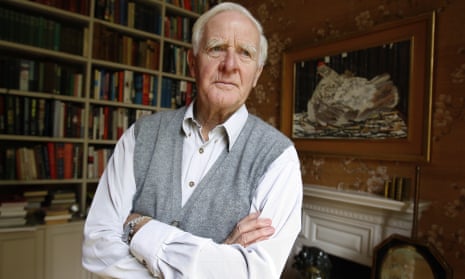Regarding the political insight of John le Carré (Obituary, 14 December), it was in the Guardian, in an interview with Stuart Jeffries (‘I do give a damn’, 6 October 2005), that Le Carré suggested that Britain might be sliding towards fascism. “Mussolini’s definition of fascism was that when you can’t distinguish corporate power from governmental power, you are on the way to a fascist state,” he said. This could not have been more vividly demonstrated than throughout the last nine months of 2020.
Nigel Gann
Lichfield, Staffordshire
Besides his literary genius, John le Carré possessed exceptional political and moral vision, which I for one will hugely miss. In the week following the 2010 general election he wrote in a letter to a friend in America: “The Etonians have taken back the shop with the help of some B-list liberals who will evaporate in their own hot air before long, leaving the shop to a ragbag of ivy league Tories, born-again PR men, sexists, anti-Europeans, nostalgists and eco-ostriches.” There’s not much he got wrong in that, as there wasn’t throughout his literary output.
David Evans
Exeter
John le Carré will be sorely missed as a writer who spoke truth to power through his novels. My favourite of his post-1989 novels is A Most Wanted Man. It is a powerful exposé of what happens when those in power decide the “truth” before the facts have been examined; how the innocent go to the wall with no regard for life. In the case of the novel this takes us to the gross inhumanity of extraordinary rendition. To my mind it’s Le Carré at his best.
Ruth Windle
Frome, Somerset
